Category Food For Thought
Shared on Instagram and archived here, this section highlights some of our favorite – and hopefully insightful – quotes that might inspire you to become a more inclusive communication professional.
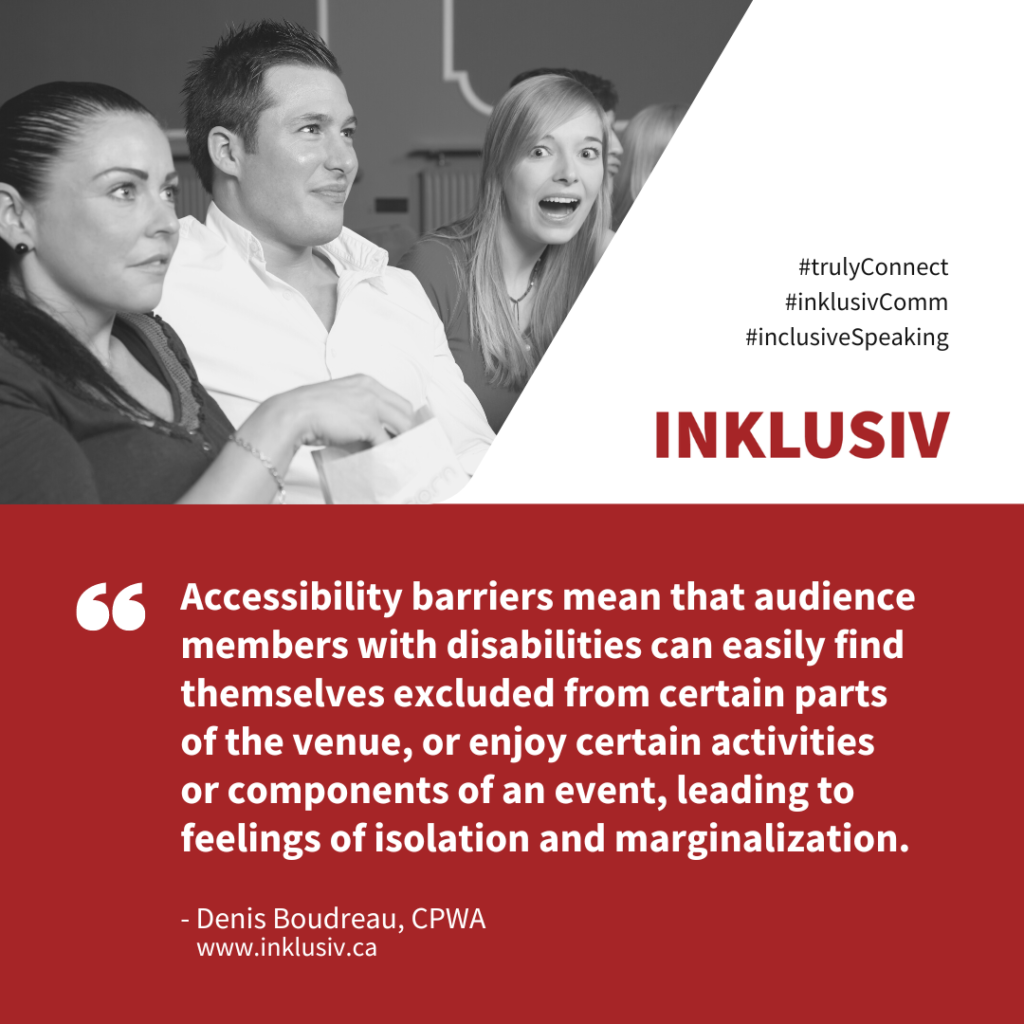

“Accessibility barriers mean that audience members with disabilities can easily find themselves excluded from certain parts of the venue, or enjoy certain activities or components of an event, leading to feelings of isolation and marginalization.”
More details about Food For Thought #067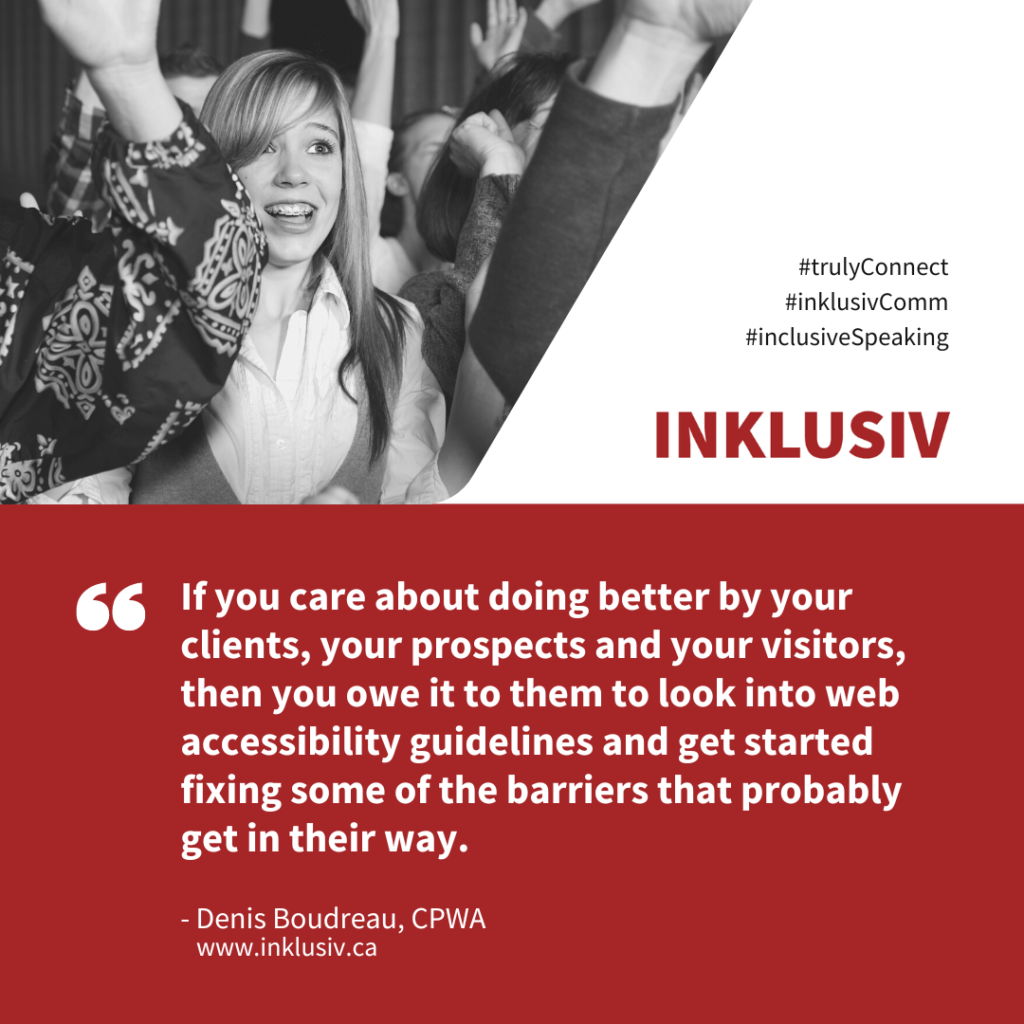

“If you care about doing better by your clients, your prospects and your visitors, then you owe it to them to look into web accessibility guidelines and get started fixing some of the barriers that probably get in their way.”
More details about Food For Thought #066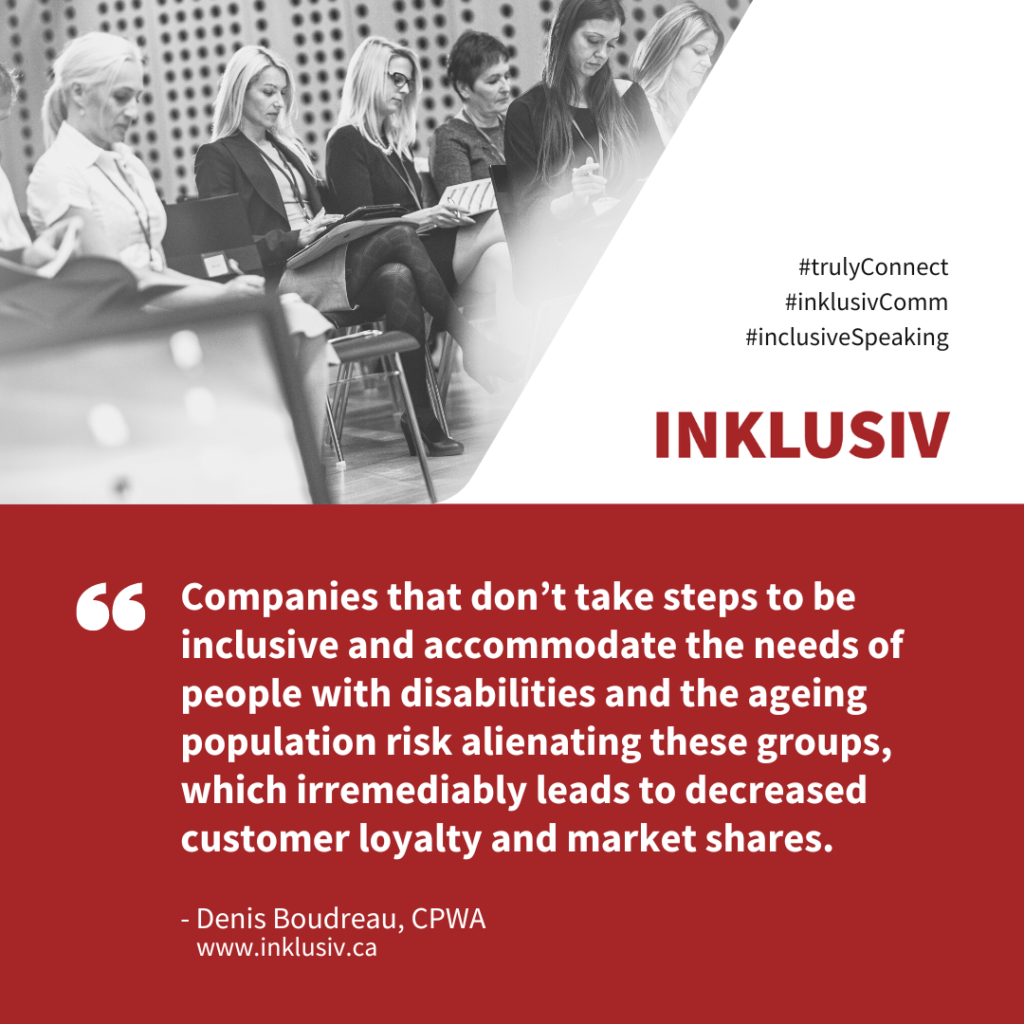

“Companies that don’t take steps to be inclusive and accommodate the needs of people with disabilities and the ageing population risk alienating these groups, which irremediably leads to decreased customer loyalty and market shares.”
More details about Food For Thought #065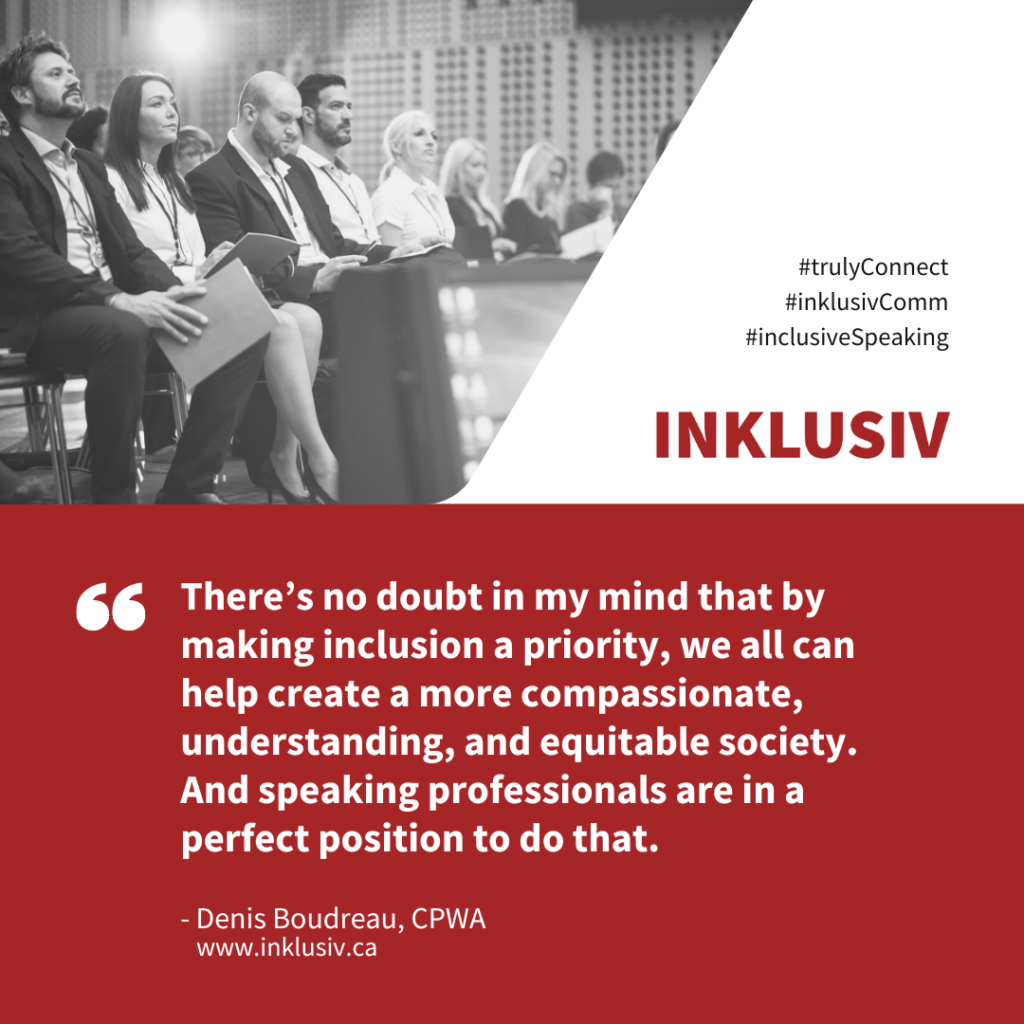

“There’s no doubt in my mind that by making inclusion a priority, we all can help create a more compassionate, understanding, and equitable society. And speaking professionals are in a perfect position to do that.”
More details about Food For Thought #064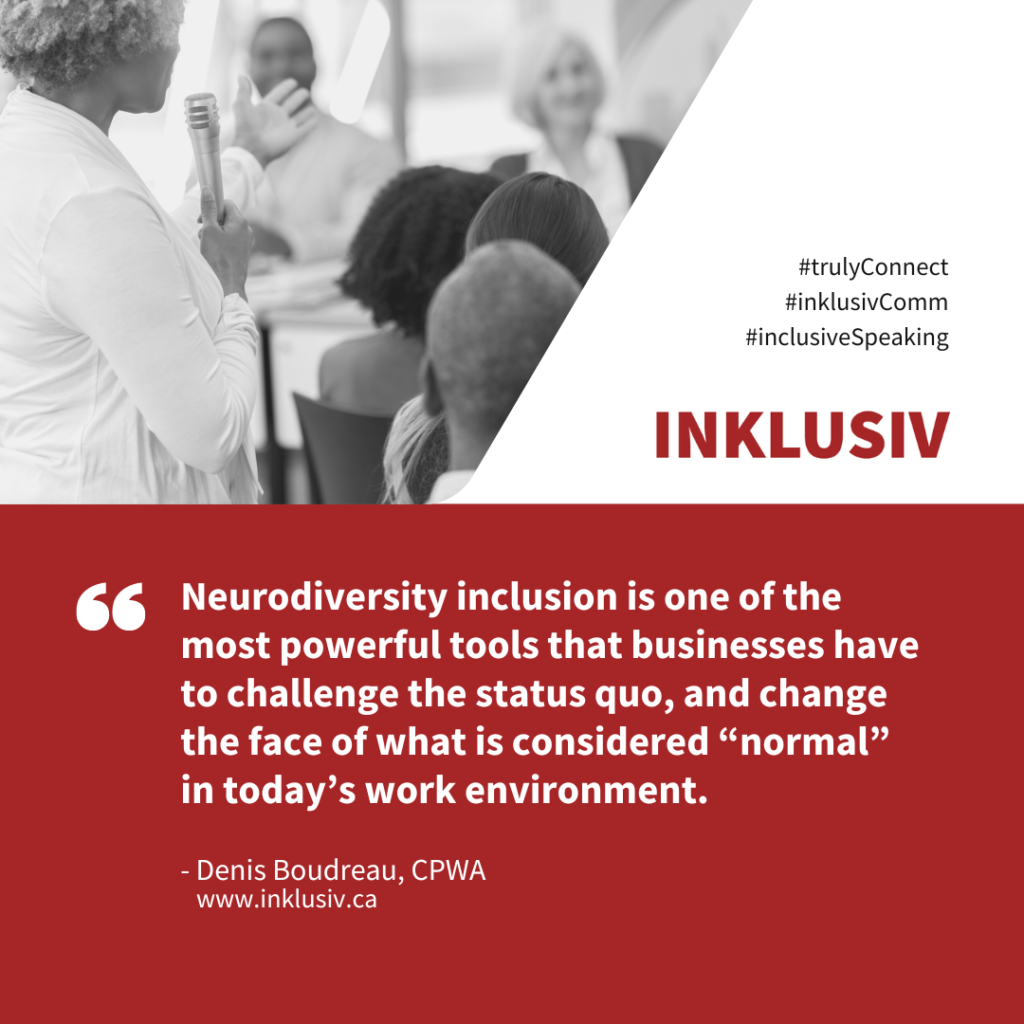

“Neurodiversity inclusion is one of the most powerful tools that businesses have to challenge the status quo, and change the face of what is considered ‘normal’ in today’s work environment.”
More details about Food For Thought #063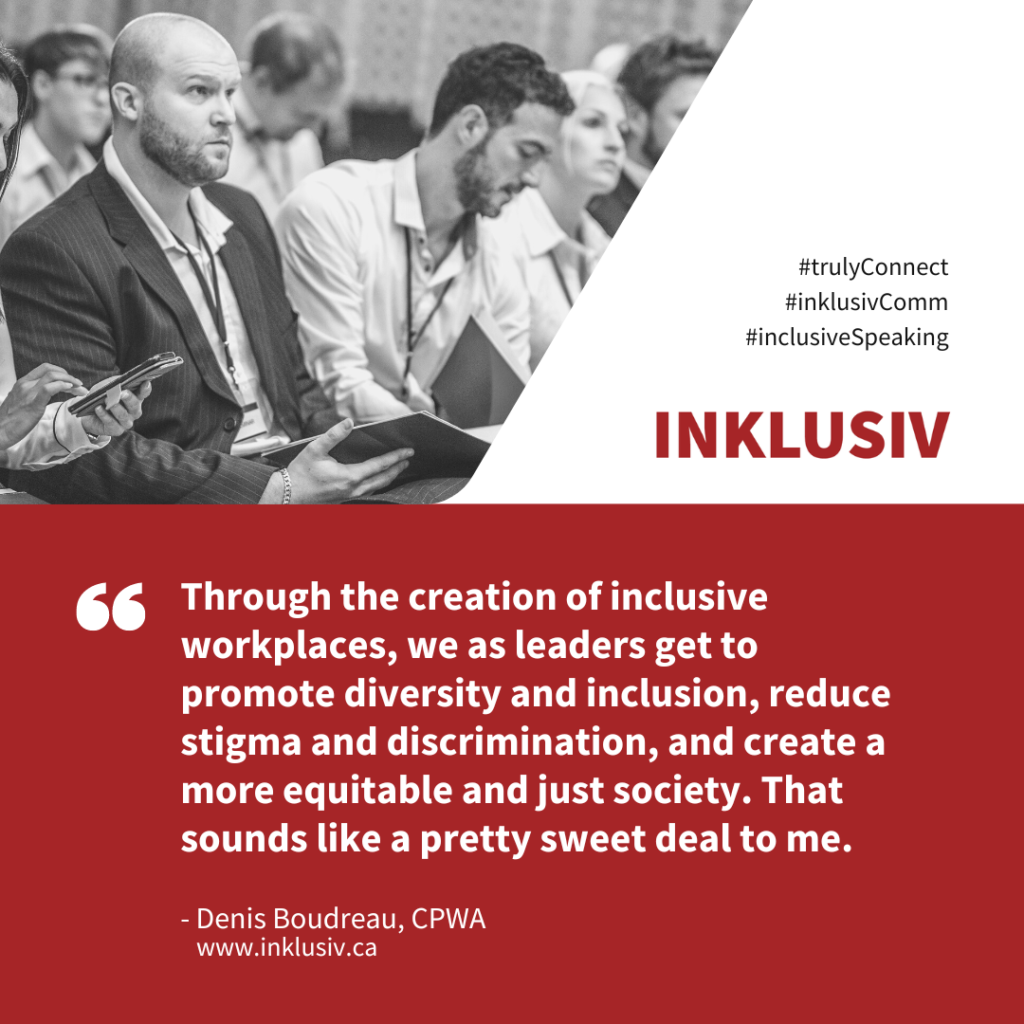

“Through the creation of inclusive workplaces, we as leaders get to promote diversity and inclusion, reduce stigma and discrimination, and create a more equitable and just society. That sounds like a pretty sweet deal to me.”
More details about Food For Thought #062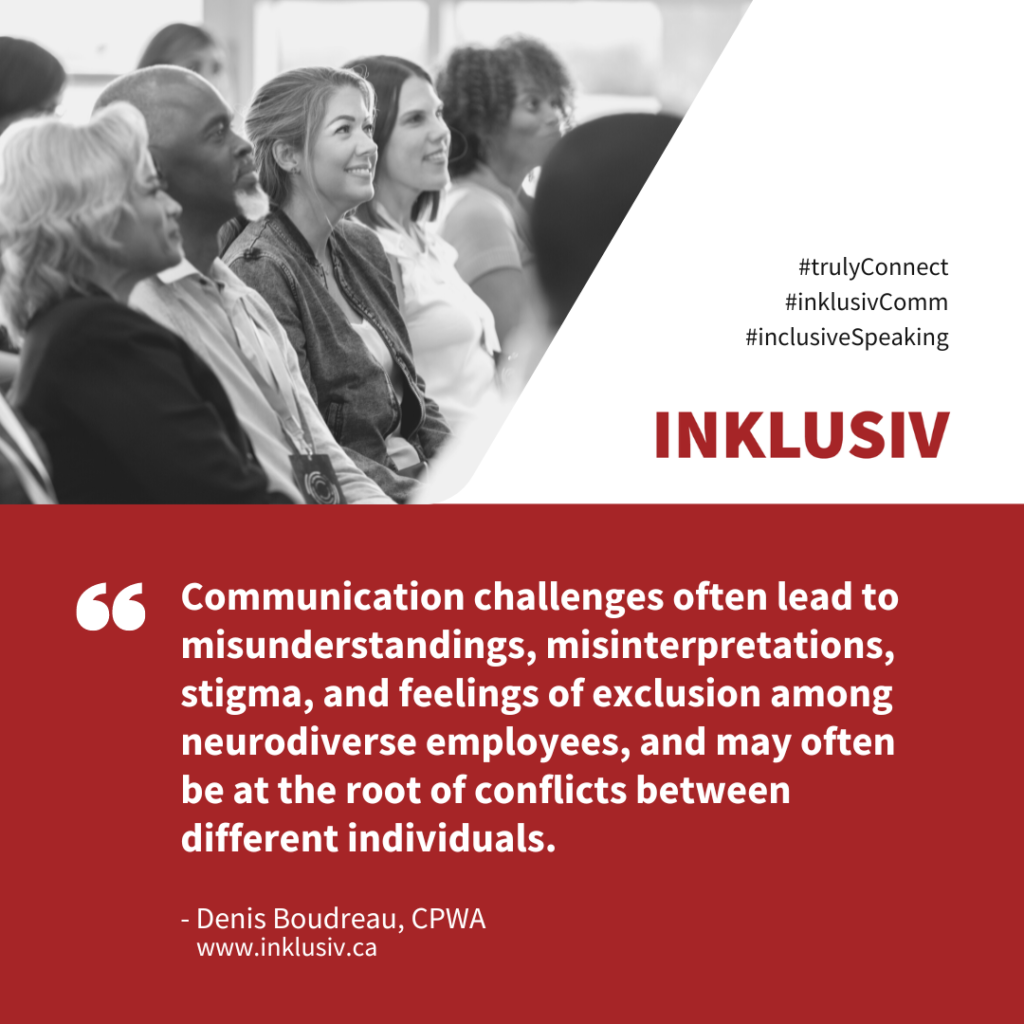

“Communication challenges often lead to all sorts of misunderstandings, misinterpretations, stigma, and feelings of exclusion among neurodiverse employees, and may often be at the root of conflicts between different individuals.”
More details about Food For Thought #061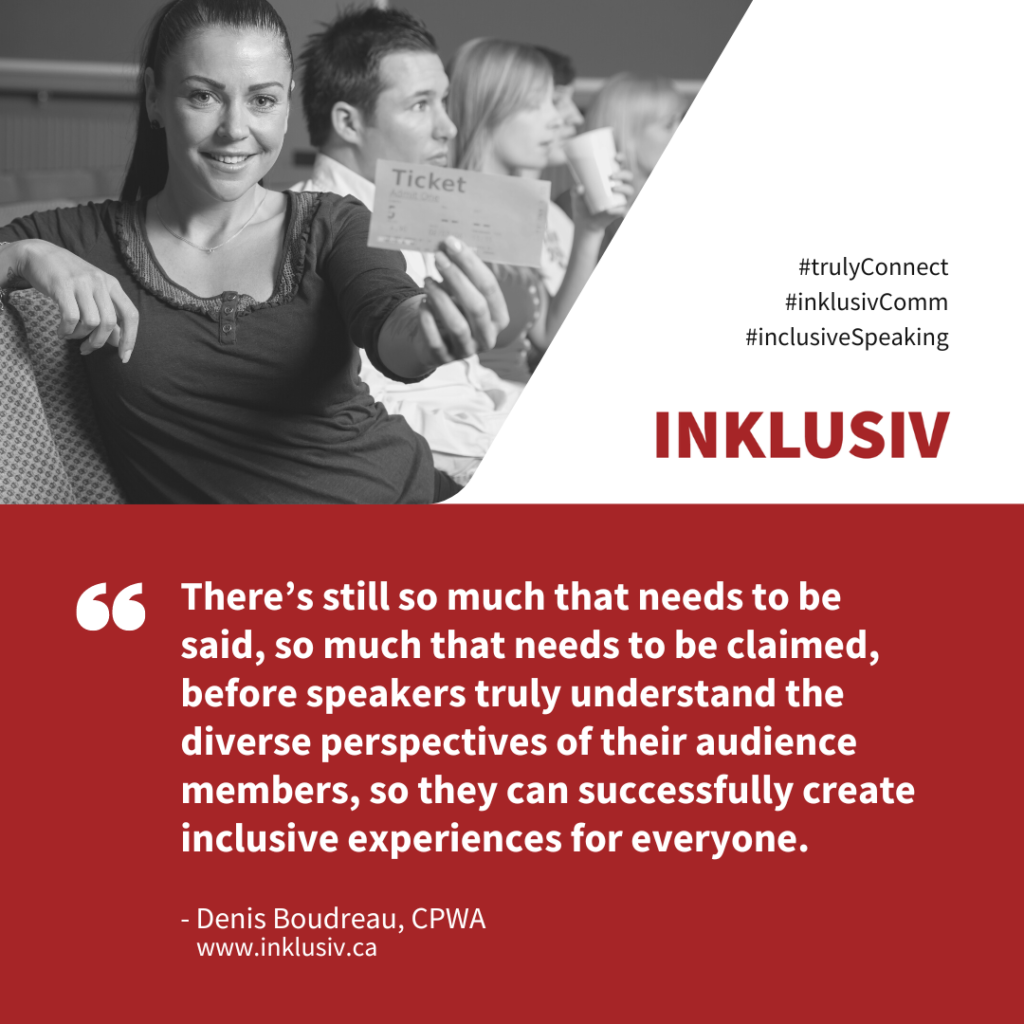

“There’s still so much that needs to be said, so much that needs to be claimed, before speakers truly understand the diverse perspectives of their audience members, so they can successfully create inclusive experiences for everyone.”
More details about Food For Thought #060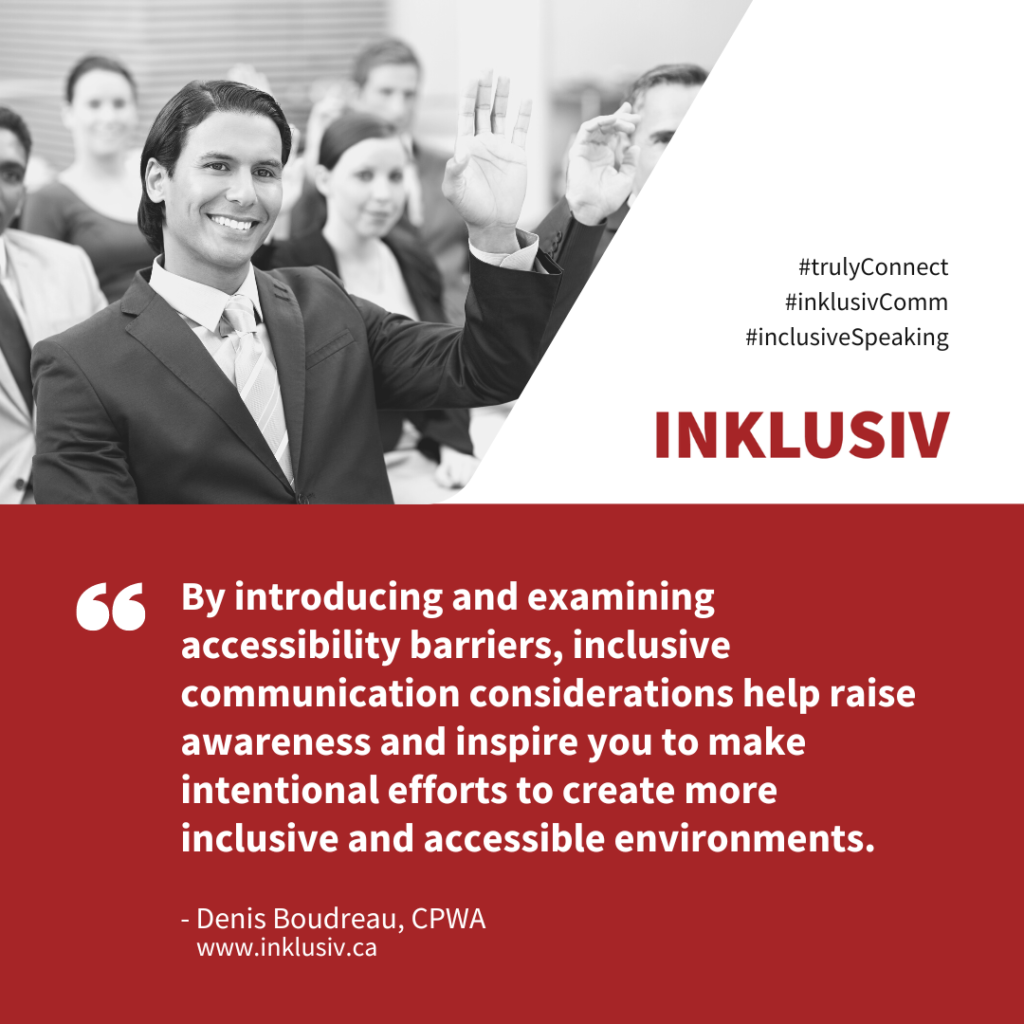

“By introducing and examining accessibility barriers, inclusive communication considerations help raise awareness and inspire you to make intentional efforts to create more inclusive and accessible environments.”
More details about Food For Thought #059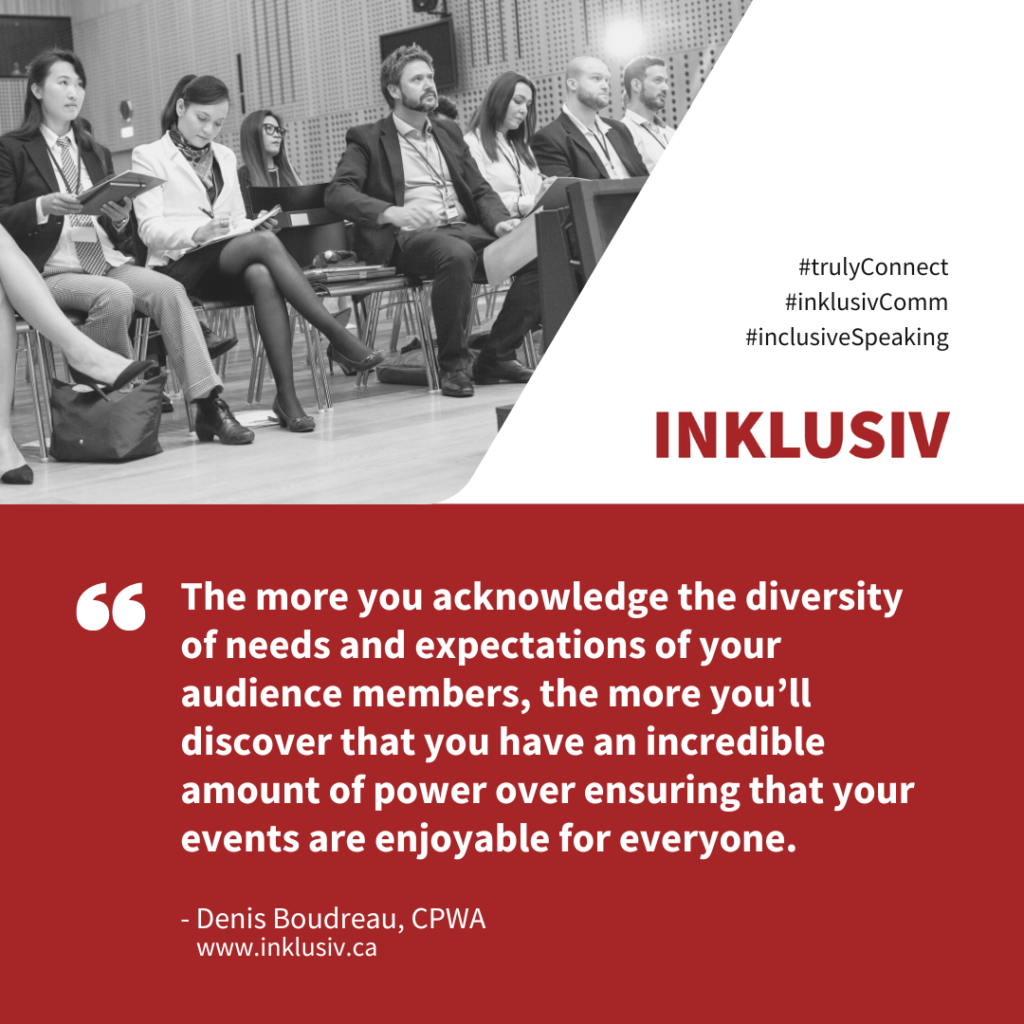

“The more you acknowledge the diversity of needs and expectations of your audience members, the more you’ll discover that you have an incredible amount of power over ensuring that your events are enjoyable for everyone.”
More details about Food For Thought #058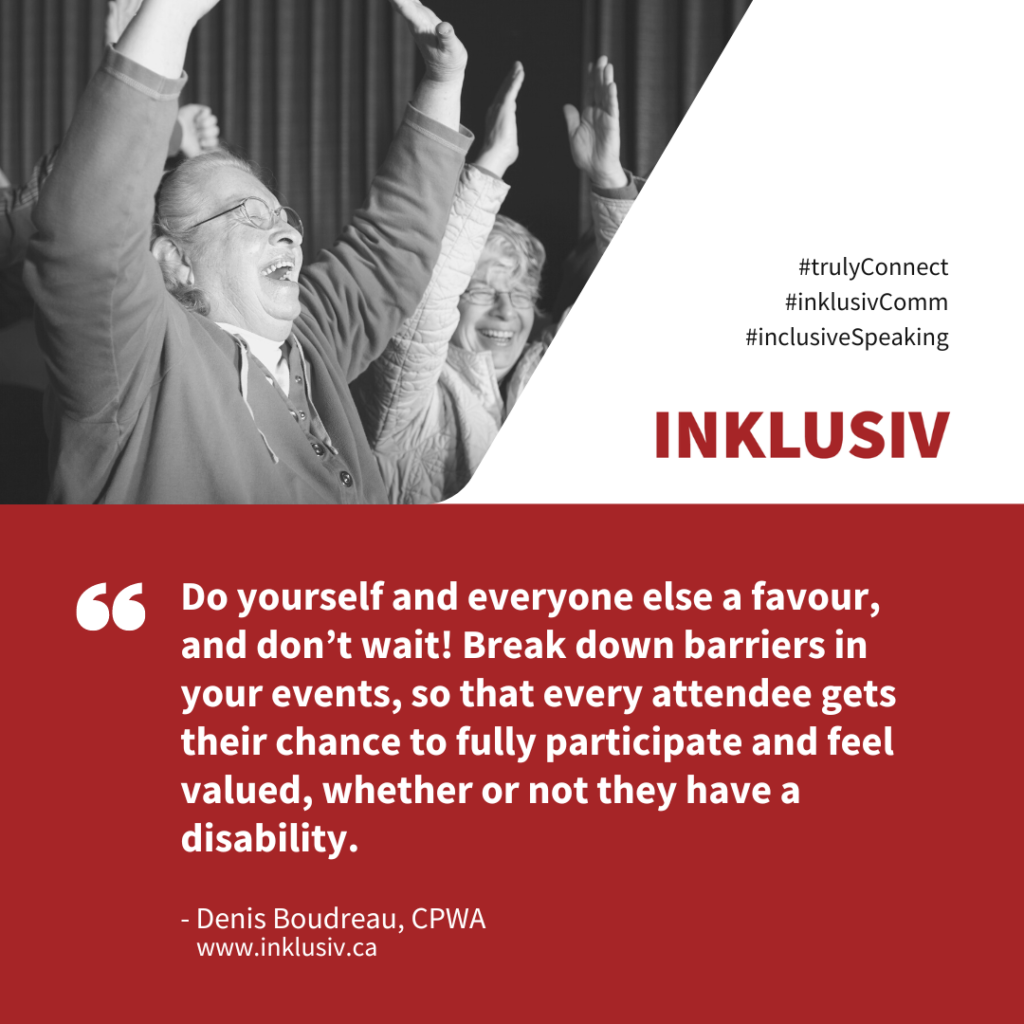

“Do yourself and everyone else a favour, and don’t wait! Break down barriers in your events, so that every attendee gets their chance to fully participate and feel valued, whether or not they have a disability.”
More details about Food For Thought #057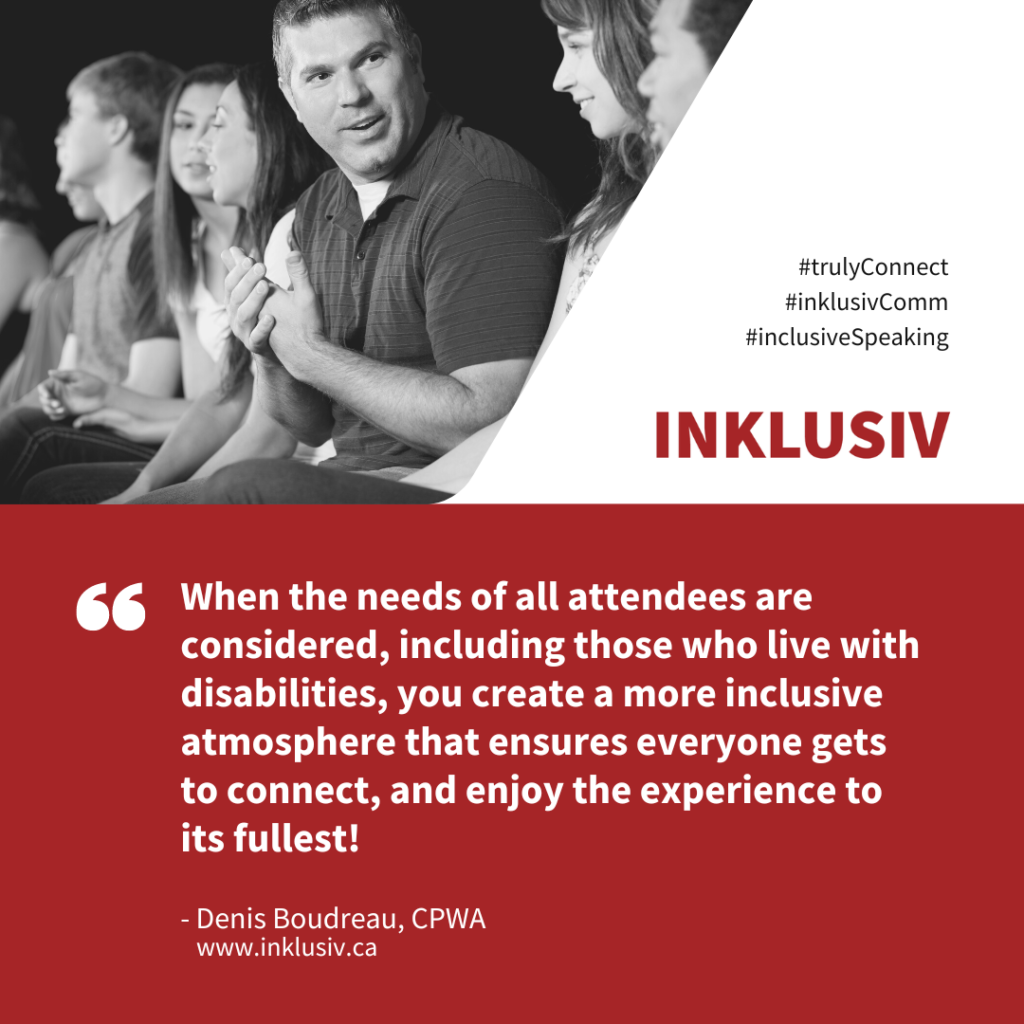

“When the needs of all attendees are considered, including those who live with disabilities, you create a more inclusive atmosphere that ensures everyone gets to connect, and enjoy the experience to its fullest!”
More details about Food For Thought #056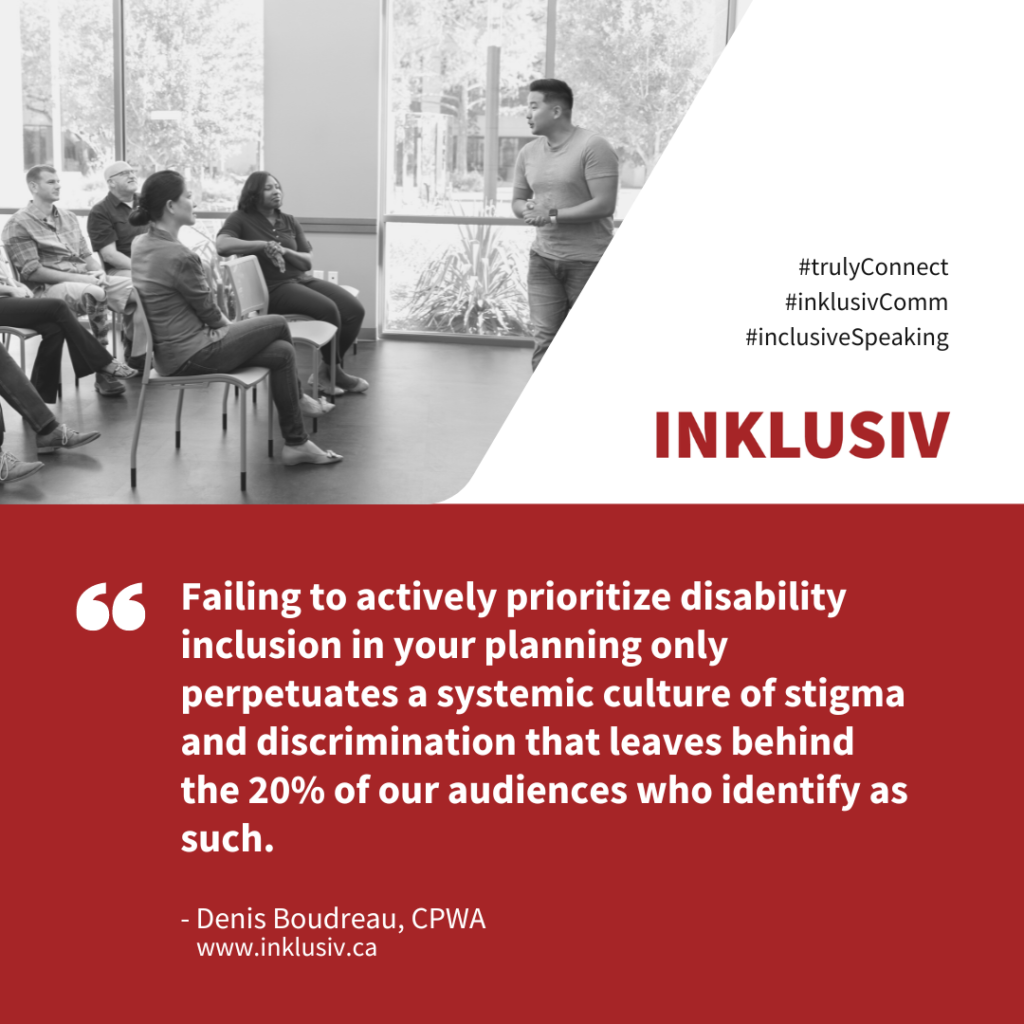

“Failing to actively prioritize disability inclusion in your planning only perpetuates a systemic culture of stigma and discrimination that leaves behind the 20% of our audiences who identify as such.”
More details about Food For Thought #055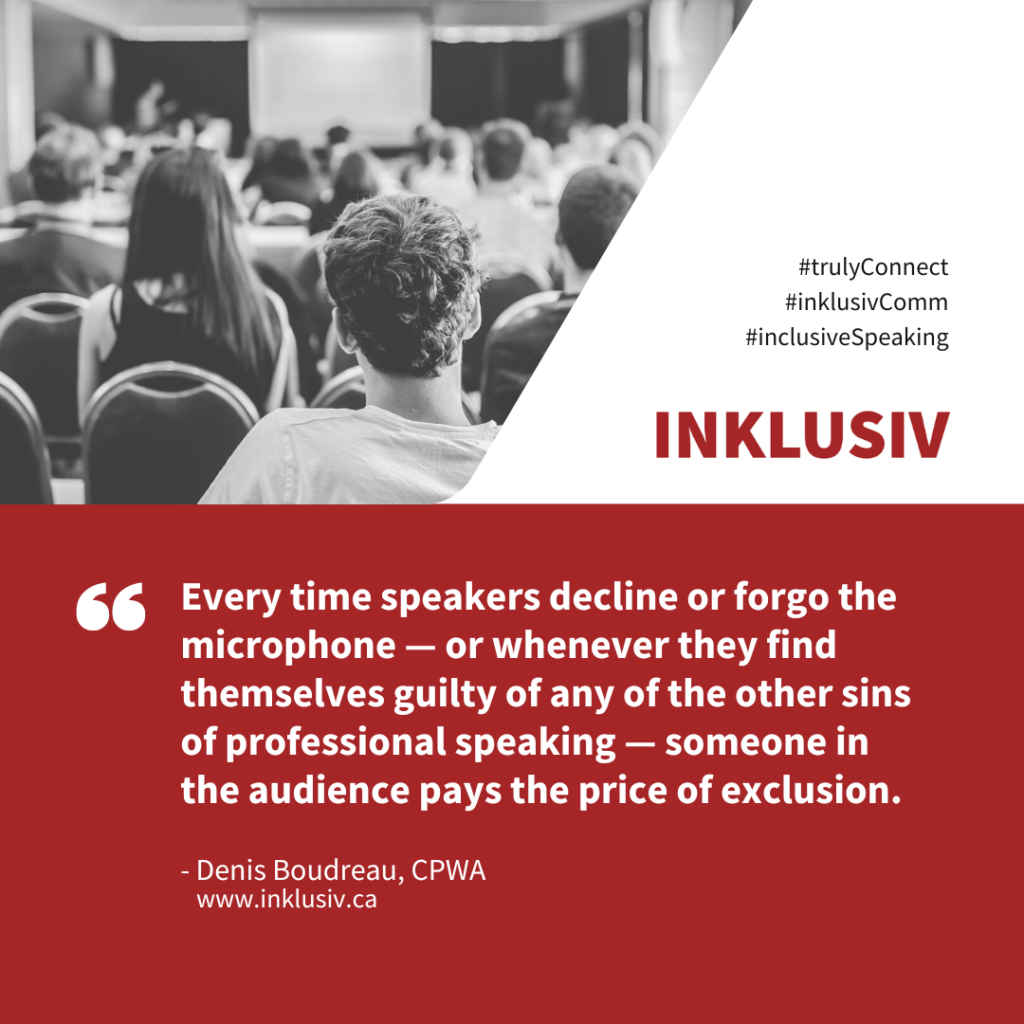

“Every time speakers decline or forgo the microphone — or whenever they find themselves guilty of any of the other sins of professional speaking — someone in the audience pays the price of exclusion.”
More details about Food For Thought #054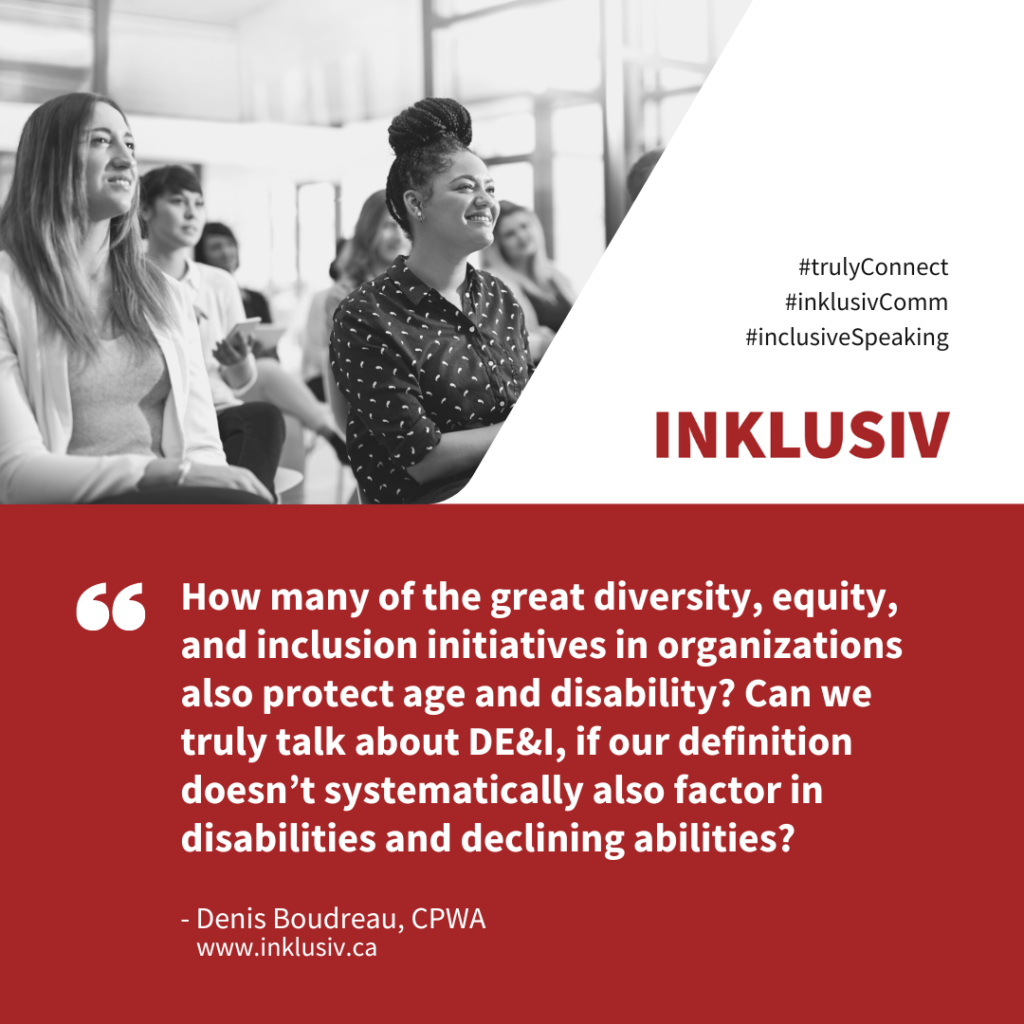

“How many of the great diversity, equity, and inclusion initiatives in organizations also protect age and disability? Can we truly talk about DE&I, if our definition doesn’t systematically also factor in disabilities and declining abilities?”
More details about Food For Thought #053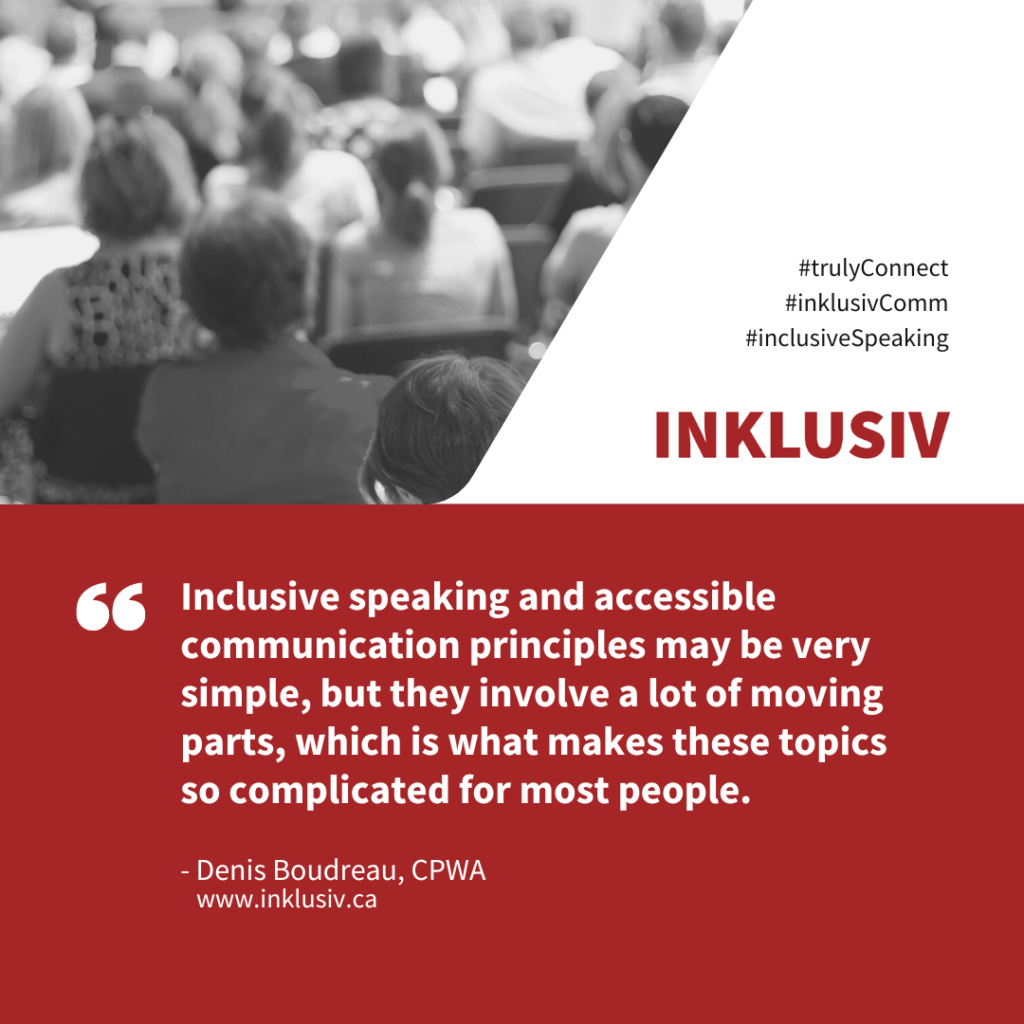

“Inclusive speaking and accessible communication principles may be very simple, but they involve a lot of moving parts, which is what makes these topics so challenging for most people.”
More details about Food For Thought #052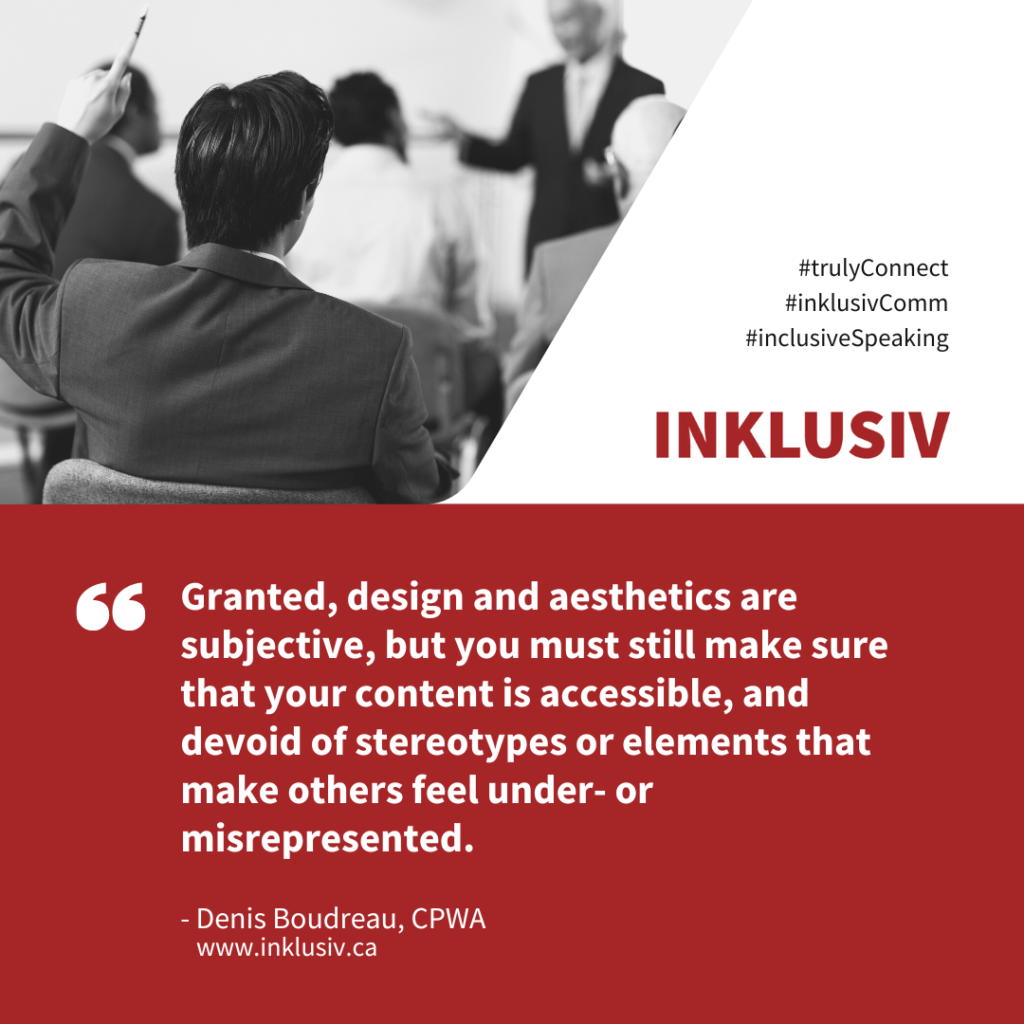

“Granted, design and aesthetics are subjective, but you must still make sure that your content is accessible, and devoid of stereotypes or elements that make others feel under- or misrepresented.”
More details about Food For Thought #051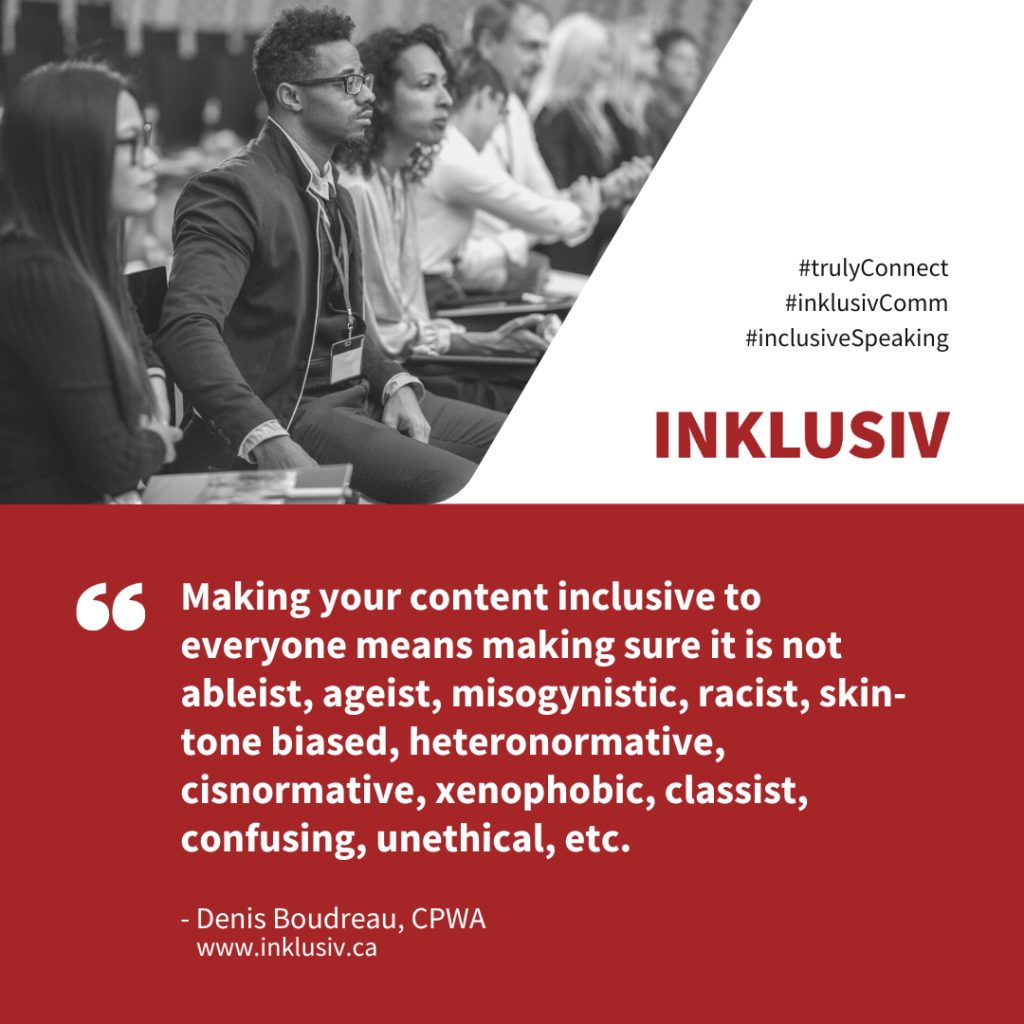

“Making your content inclusive to everyone means making sure it is not ableist, ageist, misogynistic, racist, skin-tone biased, heteronormative, cisnormative, xenophobic, classist, confusing, unethical, etc. “
More details about Food For Thought #050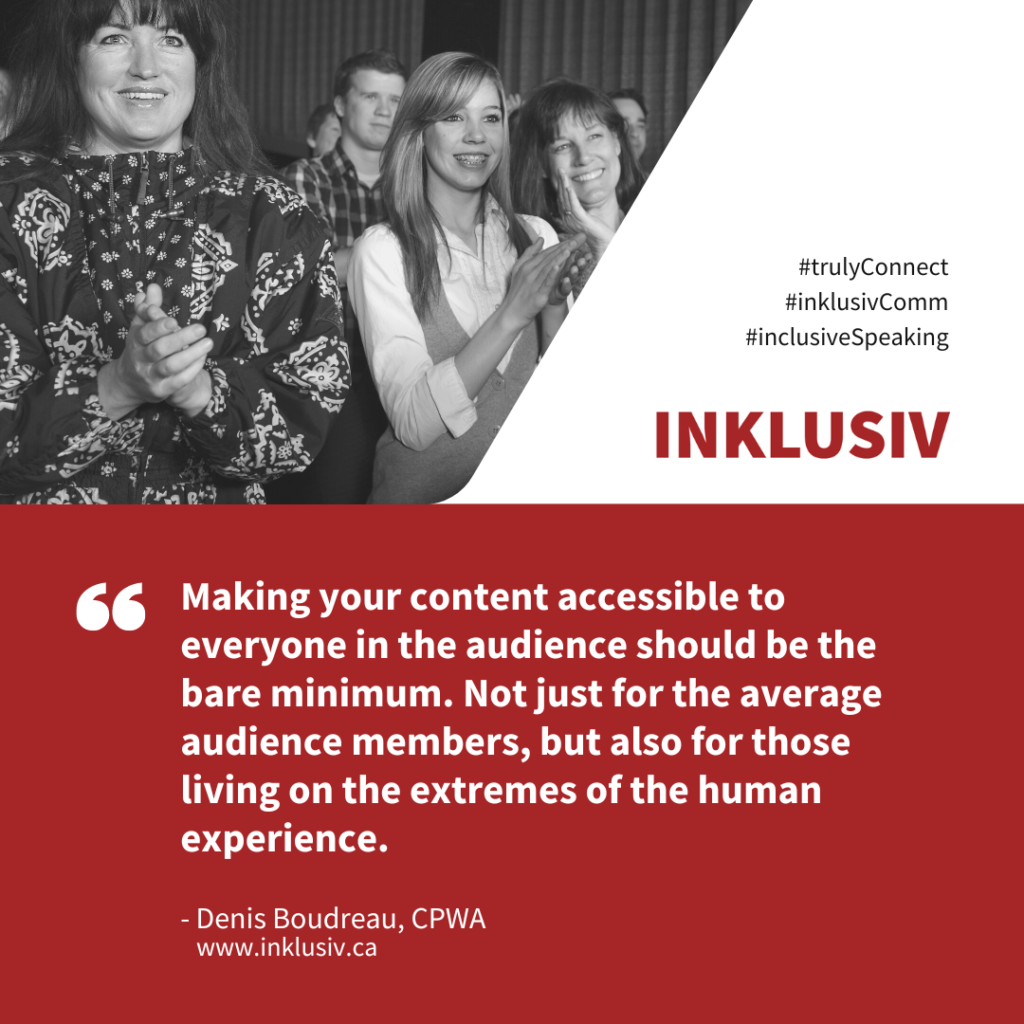

“Making your content accessible to everyone in the audience should be the bare minimum. Not just for the average audience members, but also for those living on the extremes of the human experience.”
More details about Food For Thought #049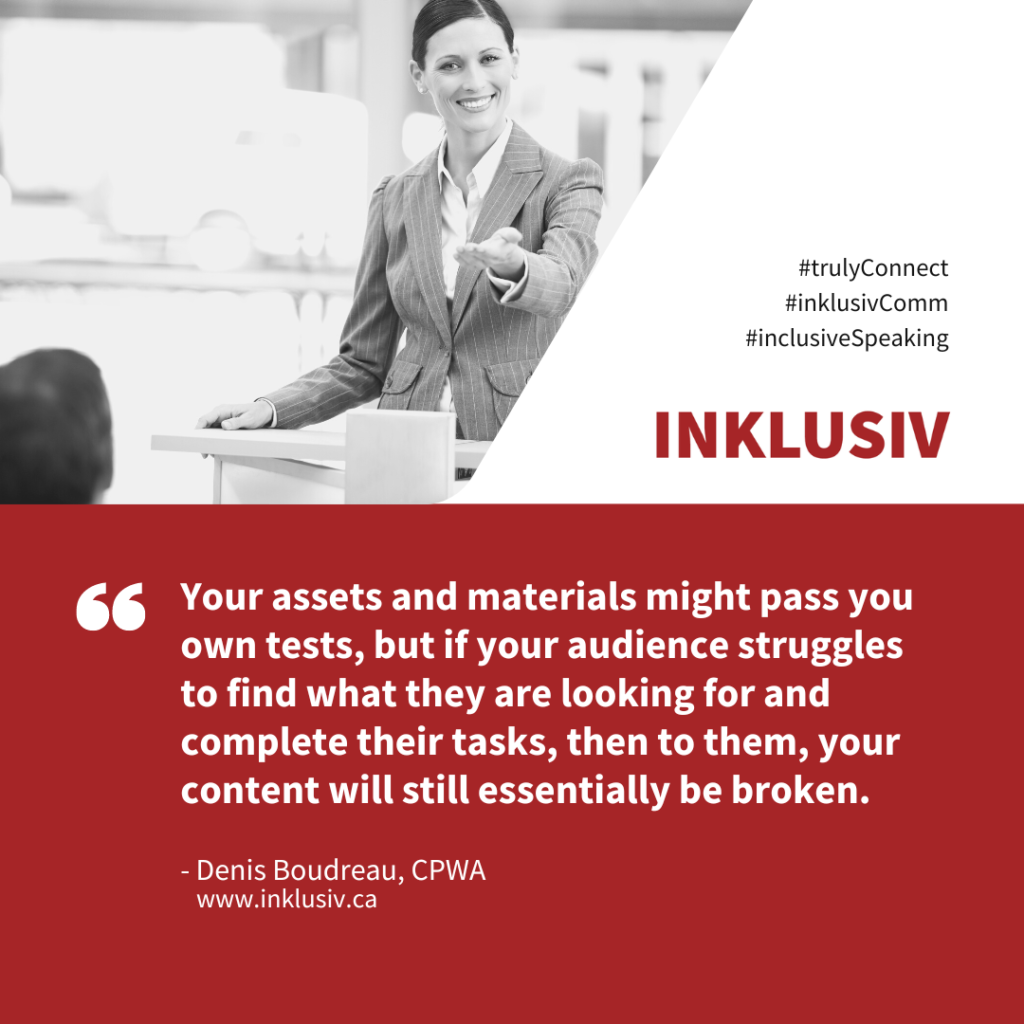

“Your assets and materials might pass you own tests, but if your audience struggles to find what they are looking for and complete their tasks, then to them, your content will still essentially be broken.”
More details about Food For Thought #048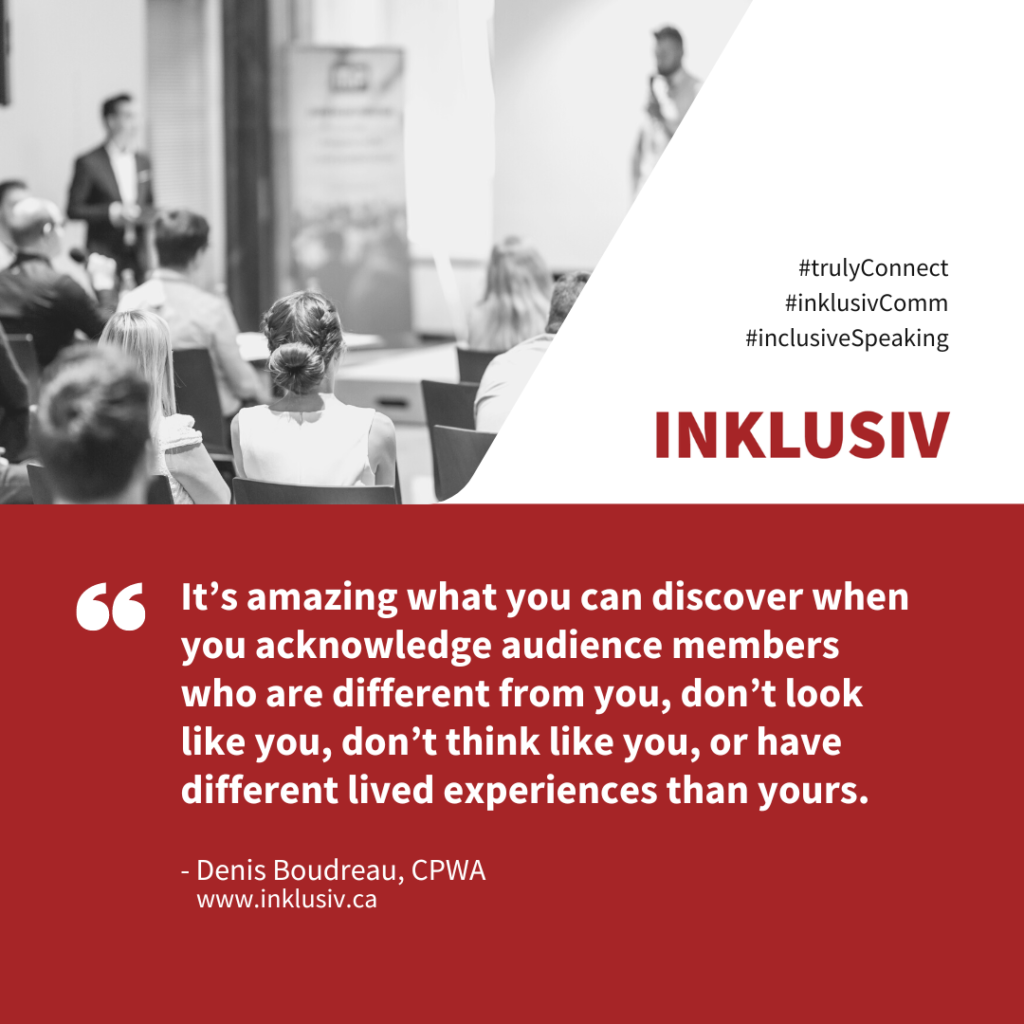

“It’s amazing what you can discover when you acknowledge audience members who are different from you, don’t look like you, don’t think like you, or have different lived experiences than yours.”
More details about Food For Thought #047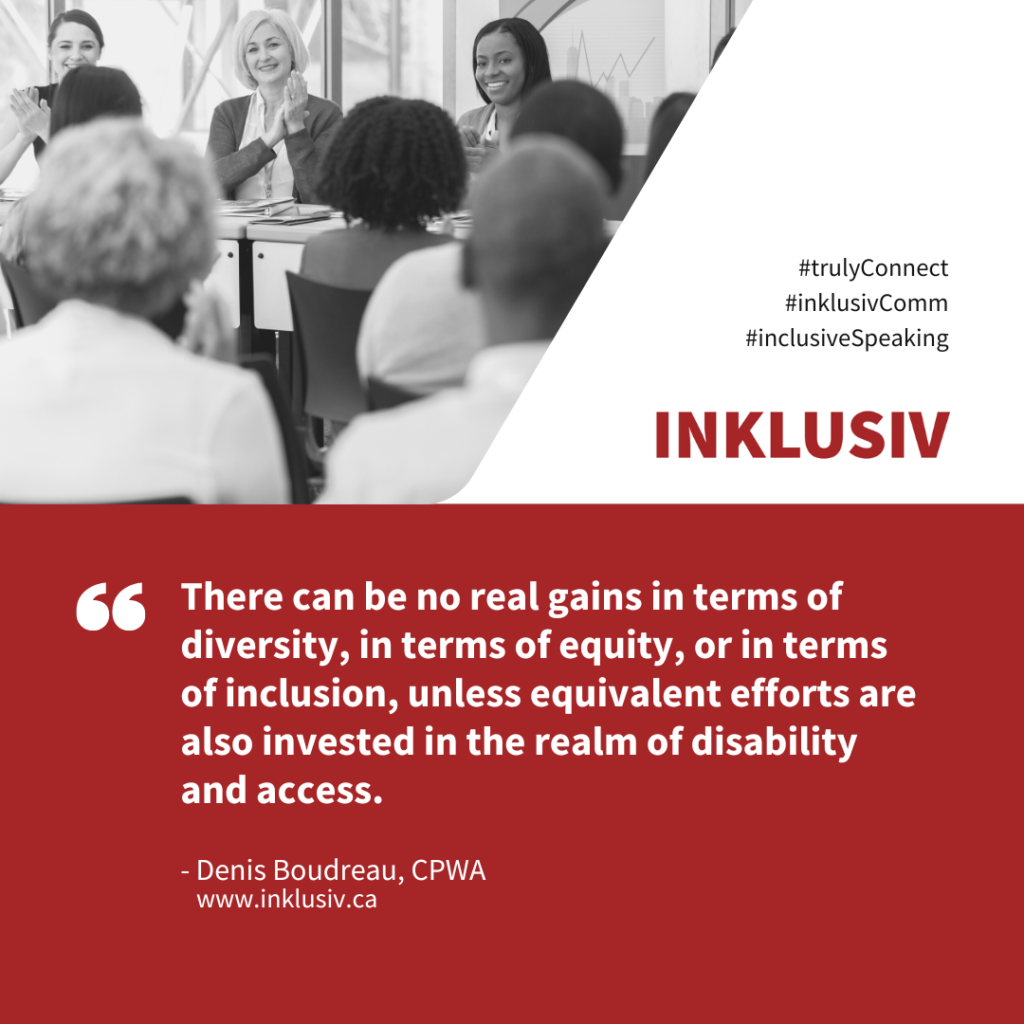

“There can be no real gains in terms of diversity, in terms of equity, or in terms of inclusion, unless equivalent efforts are also invested in the realm of disability and access.”
More details about Food For Thought #046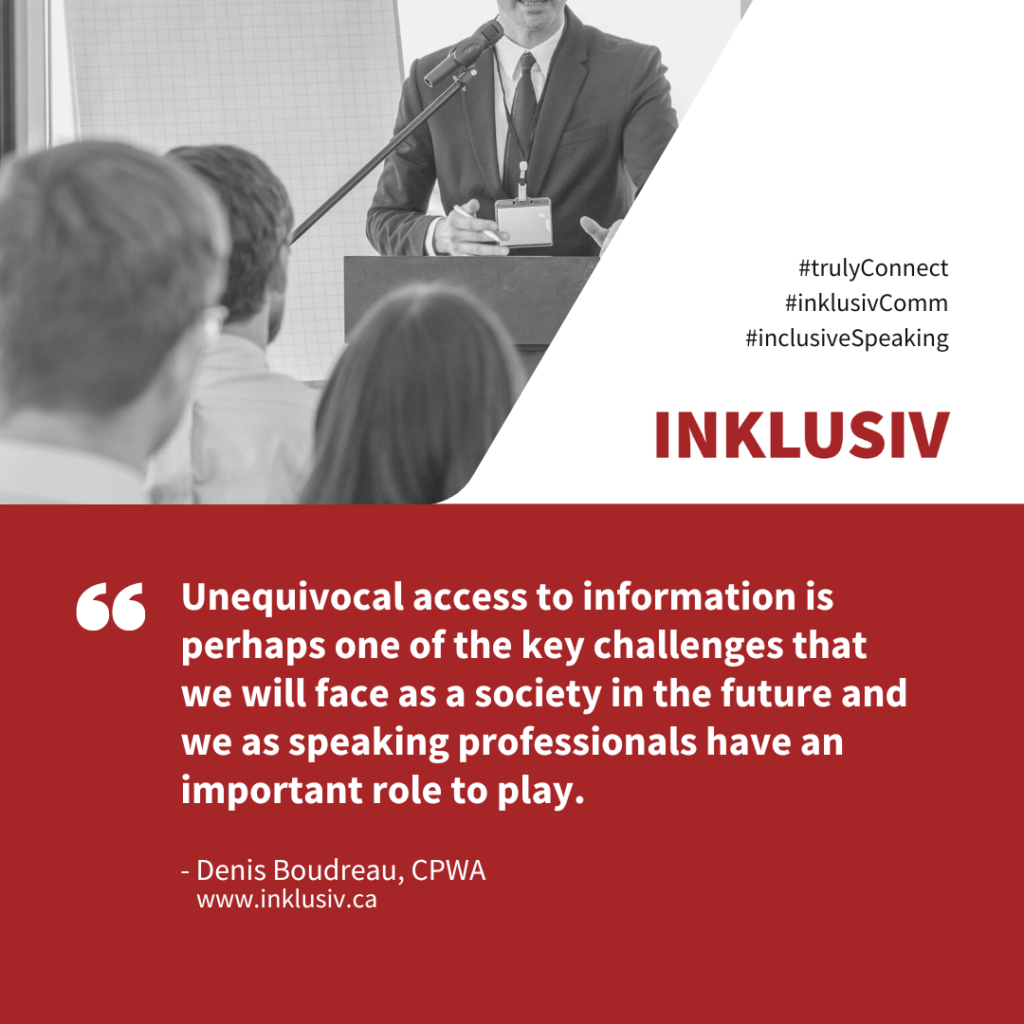

“Unequivocal access to information is perhaps one of the key challenges that we will face as a society in the future and we as speaking professionals have an important role to play.”
More details about Food For Thought #045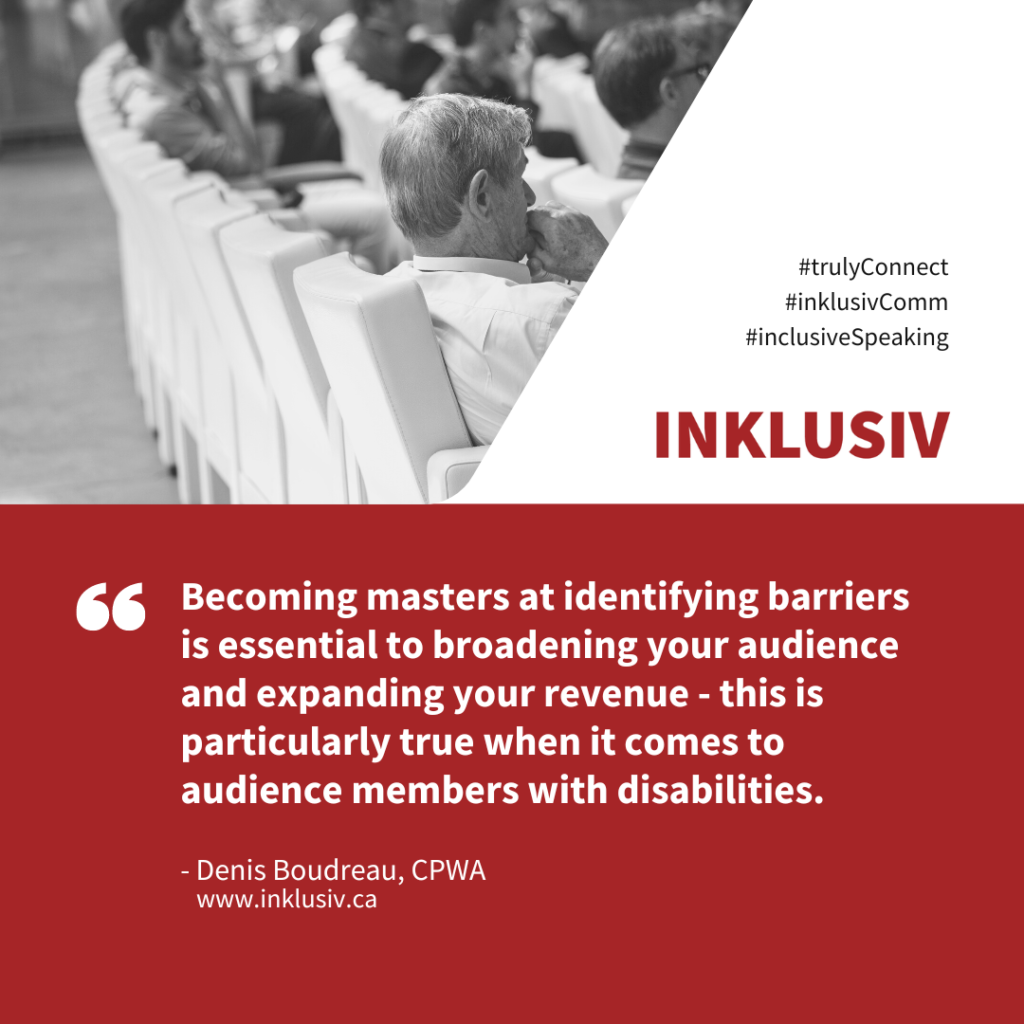

“Becoming masters at identifying barriers is essential to broadening your audience and expanding your revenue – this is particularly true when it comes to audience members with disabilities.”
More details about Food For Thought #044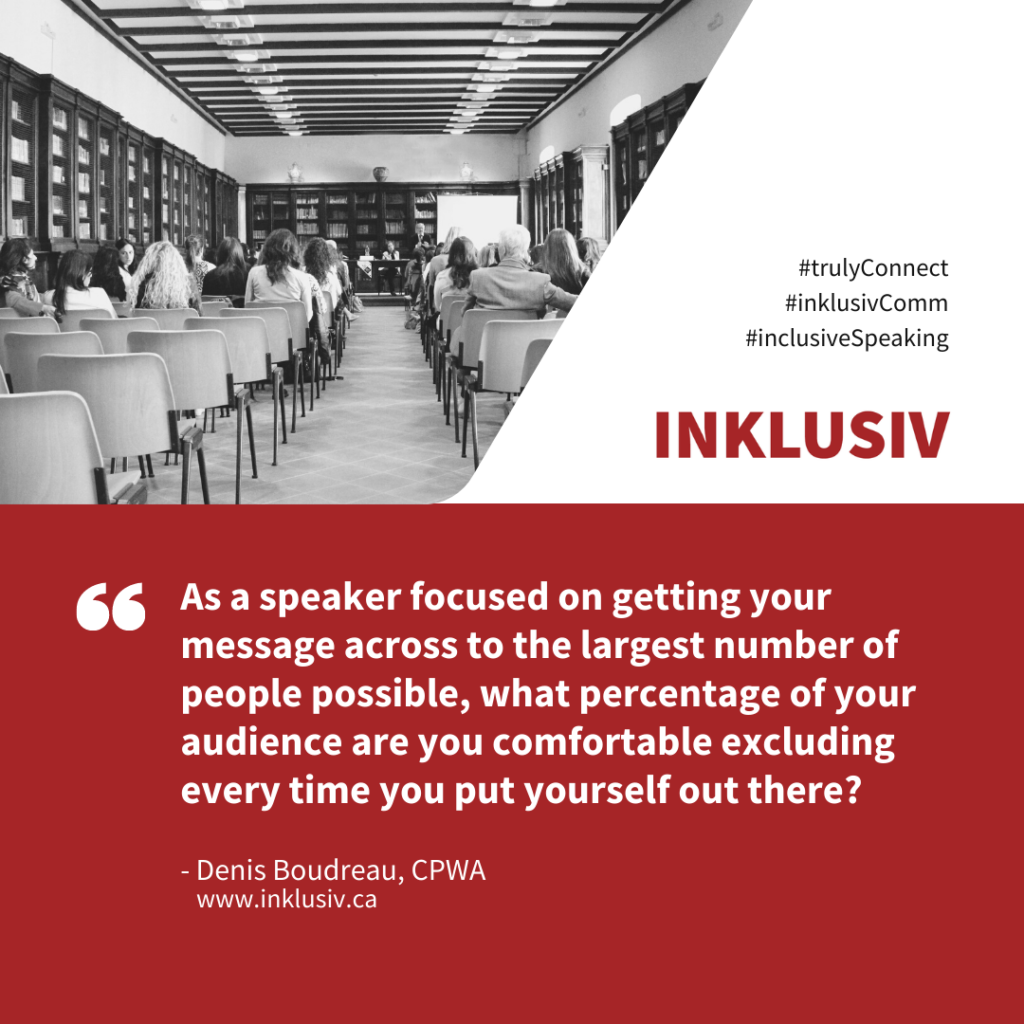

“As a speaker focused on getting your message across to the largest number of people possible, what percentage of your audience are you comfortable excluding every time you put yourself out there?”
More details about Food For Thought #043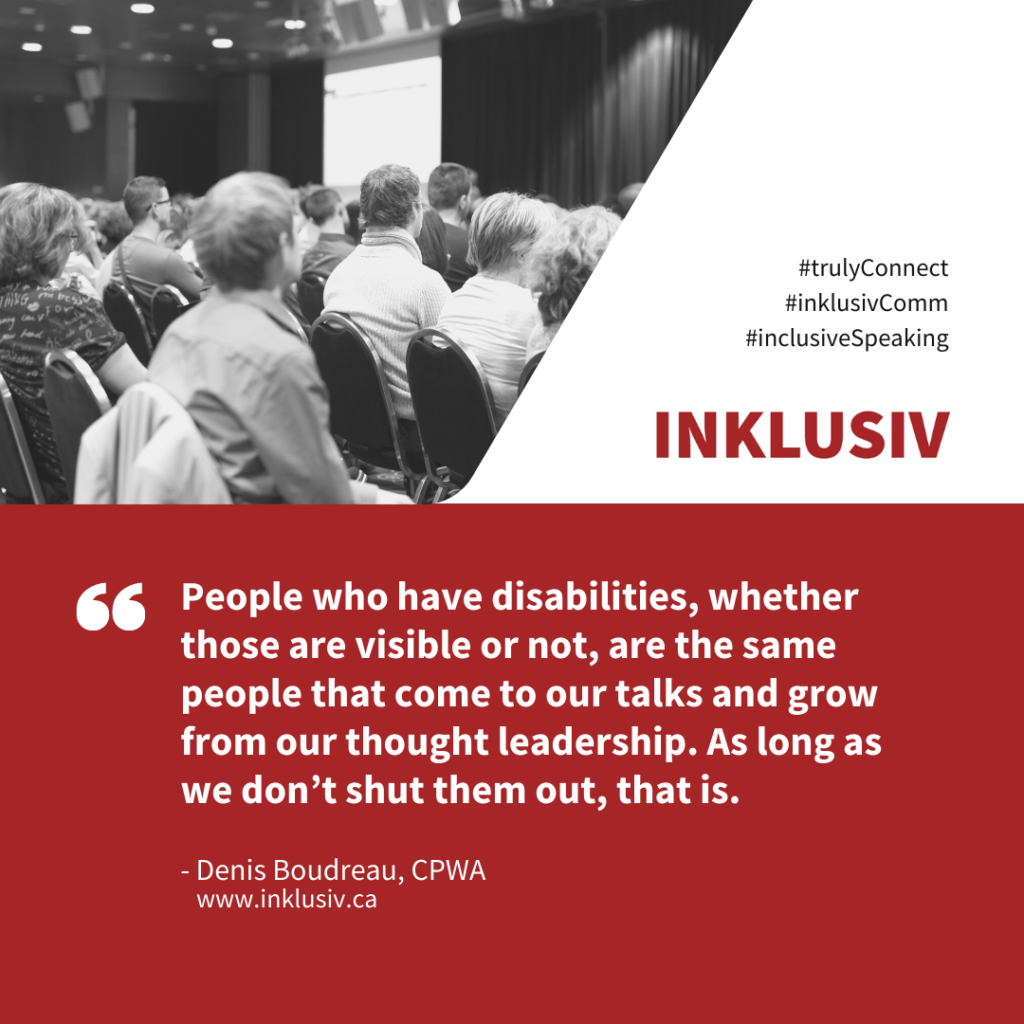

“People who have disabilities, whether those are visible or not, are the same people that come to our talks and grow from our thought leadership. As long as we don’t shut them out, that is.”
More details about Food For Thought #042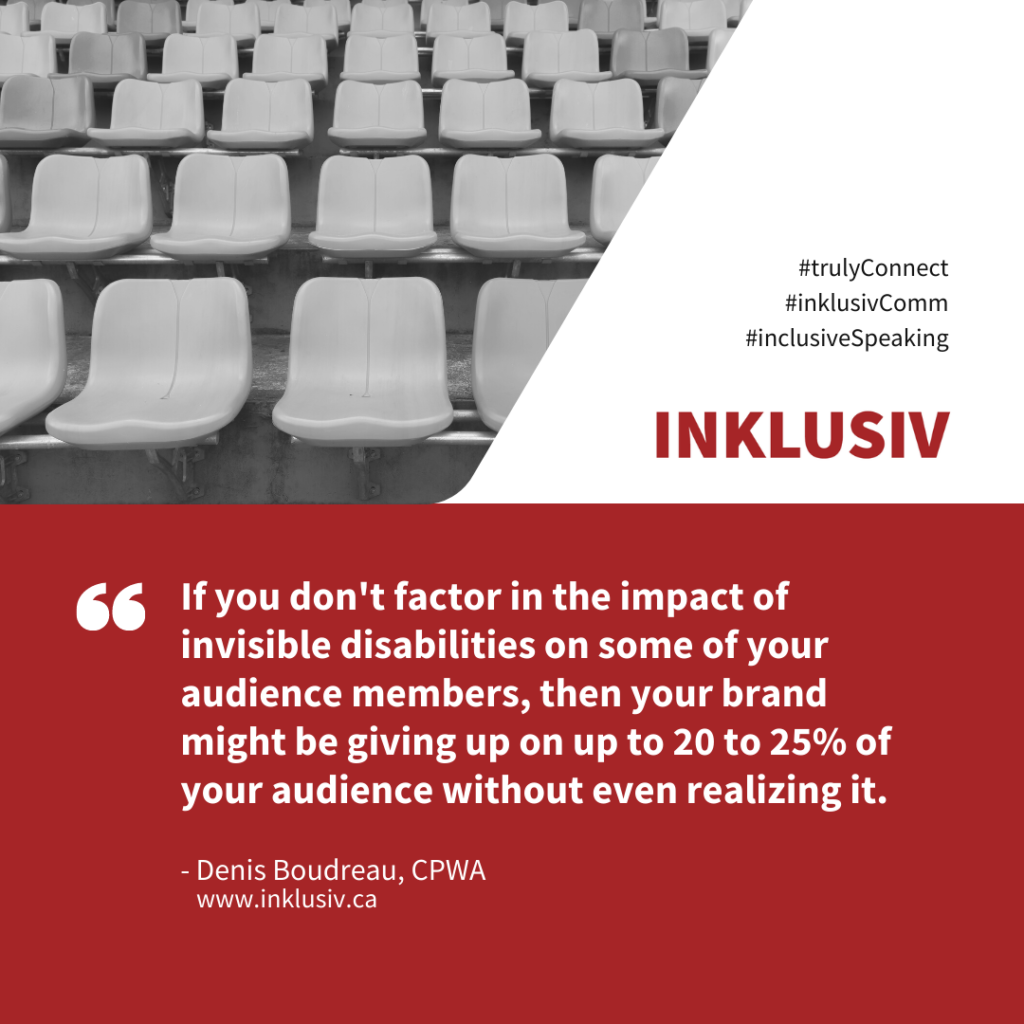

“If you don’t factor in the impact of invisible disabilities on some of your audience members, then your brand might be giving up on up to 20 to 25% of your audience without even realizing it.”
More details about Food For Thought #041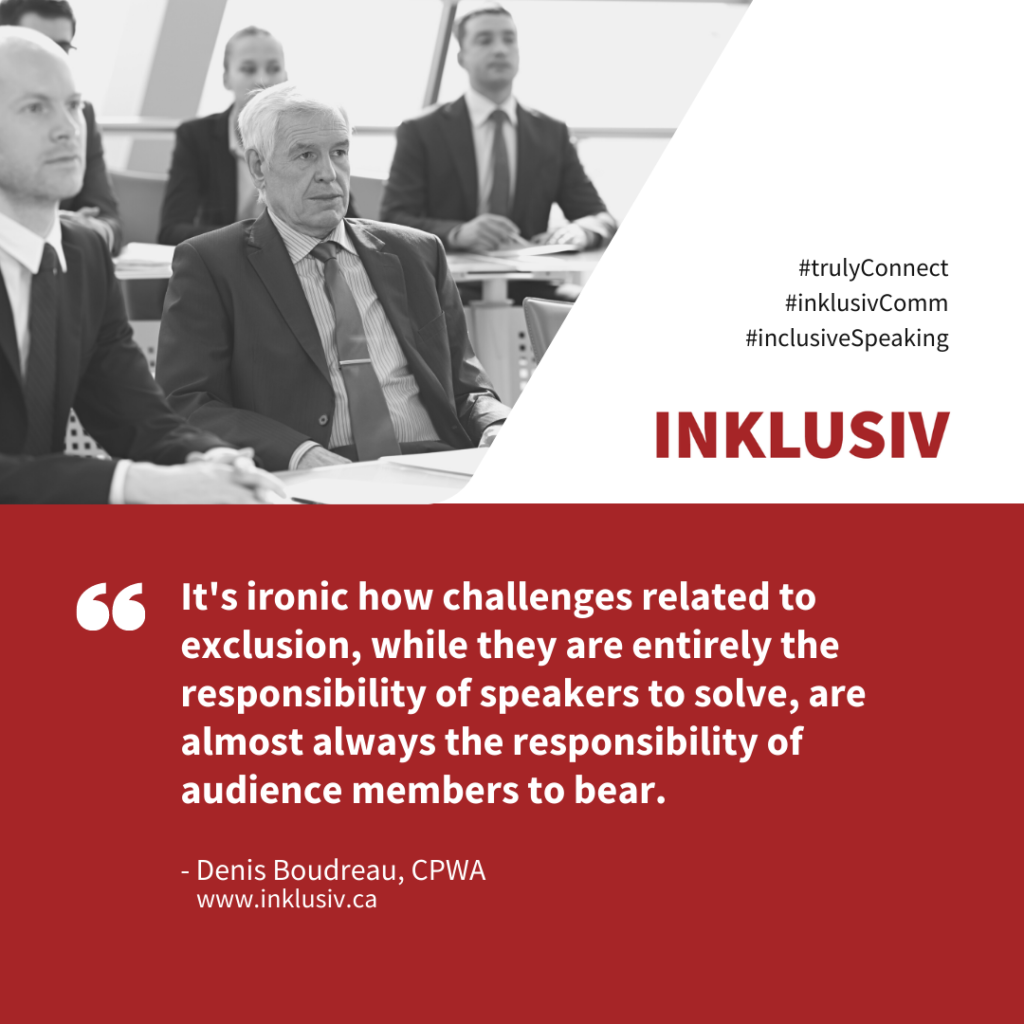

“It’s ironic how challenges related to exclusion, while they are entirely the responsibility of speakers to solve, are almost always the responsibility of audience members to bear.”
More details about Food For Thought #040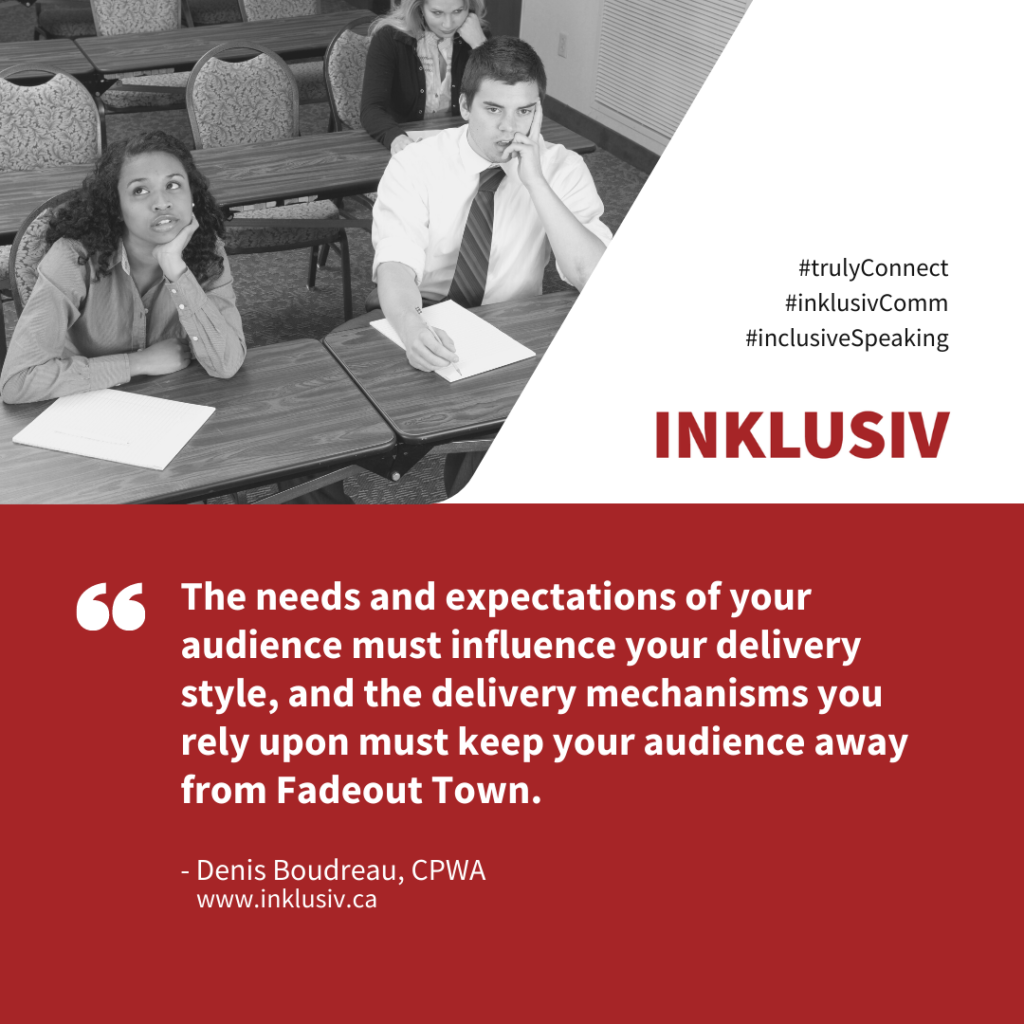

“The needs and expectations of your audience must influence your delivery style, and the delivery mechanisms you rely upon must keep your audience away from Fadeout Town.”
More details about Food For Thought #039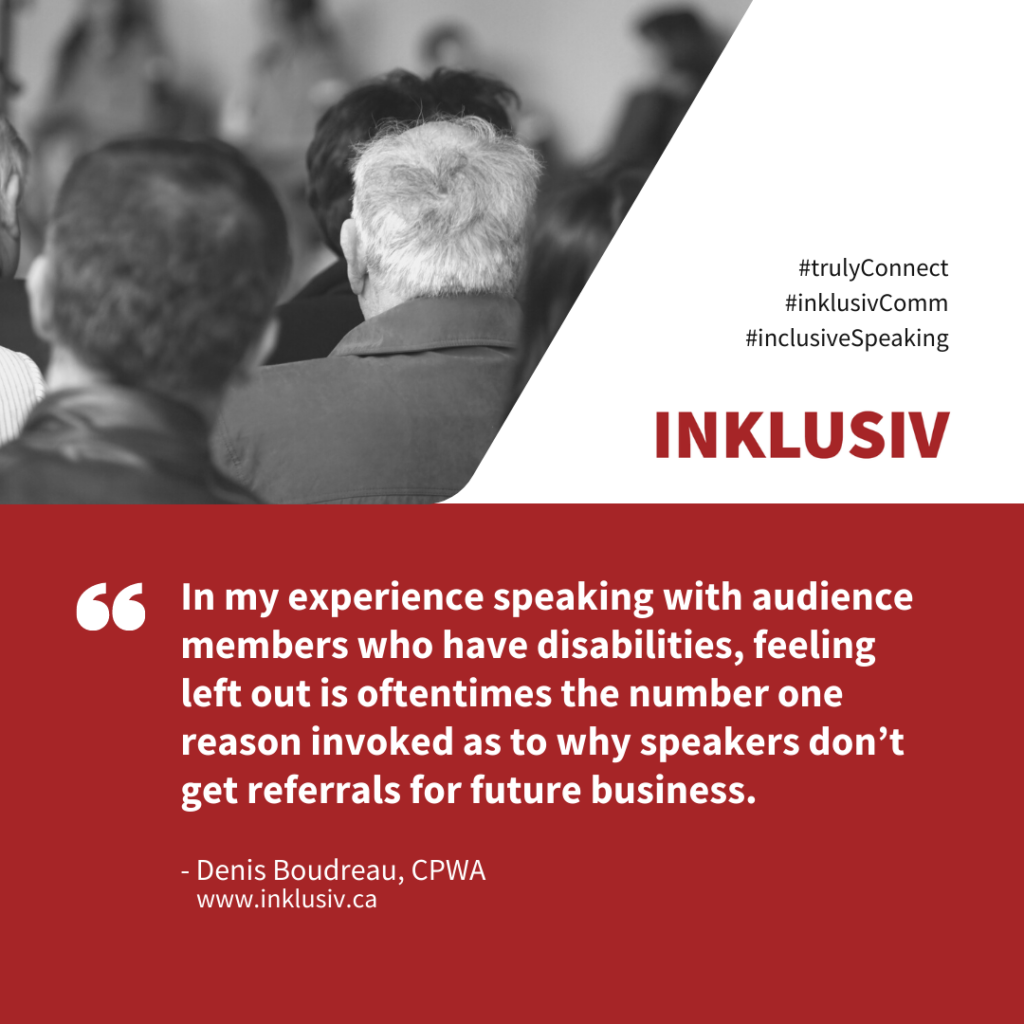

“In my experience speaking with audience members who have disabilities, feeling left out is oftentimes the number one reason invoked as to why speakers don’t get referrals for future business.”
More details about Food For Thought #038